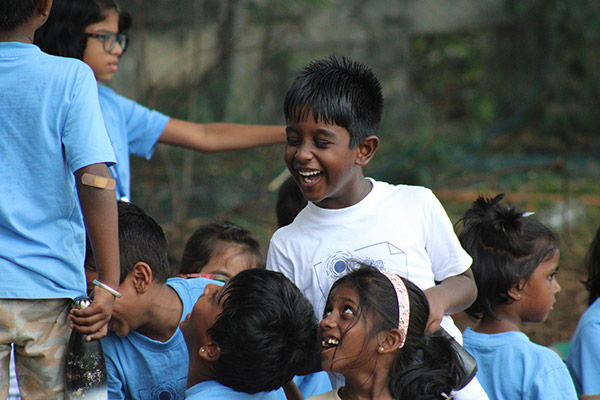Shifting Paradigms: How Education has Changed: By Maya Thiagarajan
- Chettinad - Sarvalokaa Education

- Jul 3, 2020
- 4 min read
Updated: Jul 12, 2020
As a child in the pre-Internet era, I remember looking up information in big, thick encyclopedias. In grade 7, when I had to do a project on Masai warriors, I picked up the encyclopedia Britannica, found the section under ‘M’ and looked up ‘Masai’. I found one small paragraph on the famous Kenyan tribe and dutifully wrote out three major facts in my notebook.
Imagine if we asked our seventh graders to do a project on the Masai today. They would go straight to Google, and they would find a whole world of resources. From vivid photos and videos to articles and stories, they would gain a much deeper understanding of the Masai than I did. Our children literally have the world at a swipe of their fingers now.
Have you ever tried asking a 21st century child to solve a problem? They don’t need a teacher or a textbook. They just do a quick search, watch a tutorial video on You-Tube and – hey presto! – they’ve found a solution. My eleven-year-old daughter figured out how to make home-made ice-cream and how to edit films on I-Movie. My fifteen-year-old son figured out how to start a football blog on Instagram and grow his following substantially. Kids today learn in very different ways from kids a generation ago.
No teacher (or textbook) can compete with Google when it comes to remembering facts and disseminating information. So, what is a teacher’s role today? Here are 5 key roles of a 21st century teacher:
The Nurturer: Yes, the world has changed, and technology is advancing so rapidly, we can barely keep up. But some things have not changed. We need other humans in our lives. (Even if we’re ‘social distancing’, the fact is we’re social creatures who thrive on interactions with others.) Our children, particularly, need human contact with adults who care about them. Teachers today can help build community, motivate and inspire students, and teach important socio-emotional skills.
The Curator of Knowledge: Google has endless resources, but a lot of them are fake or low-quality. A teacher needs to find the best resources possible and put them together for her students. If kids are going to do a project on global warming, they need some good introductory resources that explain the basic problem to start with. A teacher needs to sift through all the resources on the web and pick out the ones to upload and share with students, and a teacher needs to use these resources to design a learning journey for students.
The Facilitator of Discussions and Activities: Google can give our children information and facts, but until they can discuss and apply these ideas, they won’t be learning in useful ways. A 21st century teacher has the creative and exciting task of facilitating discussions and activities for students, so that they can interpret, debate, synthesize, and apply the knowledge that’s so easily available. So, while a student can read all about the Indian freedom struggle, a skilled teacher can help students discuss questions such as “When is it okay to break laws, if ever? What would Gandhi say about this? What do you think?”
The Supervisor of Skill Development: Skills – like reading, writing, problem solving, movie-making, and presenting – are all developed through lots of practice, with strong feedback loops. Students need teachers to structure ways to practice skills and get better. For example, while a student can learn the basics of grammar online through video tutorials and online exercises, she needs lots of practice with actual writing in order to apply that knowledge of grammar. A teacher needs to design these practice experiences, offer targeted and specific feedback, and eventually assess the students’ level of skill development.
The Assessor of Learning: While we can share a wide array of resources with students on practically any topic, many students won’t necessarily jump at the idea of learning algebra or understanding the unique contribution of the Mughals. Teachers need to motivate students to learn important topics, and they need to hold students accountable for their learning by designing assessments to ensure that students acquire a deep conceptual understanding of topics, as well as mastery over key skills.
A World of Possibilities with Online School: Our kids can and should develop strong independent learning skills, but our teachers are here to support them through the learning process in so many crucial ways. Education paradigms have been slowly shifting over the last decade, and this current pandemic has accelerated and intensified that shift.
With schools making the transition to online teaching and learning, we have a unique opportunity to experiment with a new form of education, where teachers curate resources, facilitate discussions, and offer support to students, who can practice and develop their independent learning skills.
We’re moving from a conventional form of teacher-led learning to a 21st century model of independent learning, where the teacher provides crucial support to the student in his or her learning journey.
It’s an exciting world full of possibilities for both teachers and students!
Maya Thiagarajan is an academic mentor to Chettinad Sarvalokaa Education. Maya holds a Masters in Education from Harvard University and a BA in English from Middlebury College. She is the author of ‘Beyond the Tiger Mom: East-West Parenting for the Global Age’.







Comments